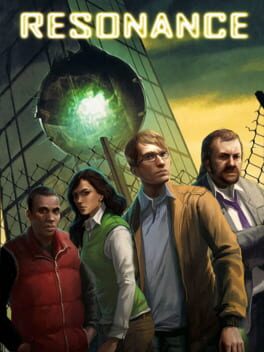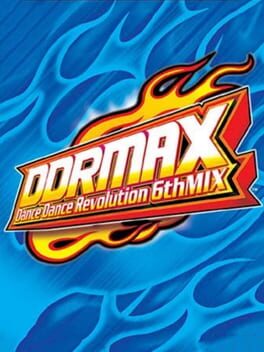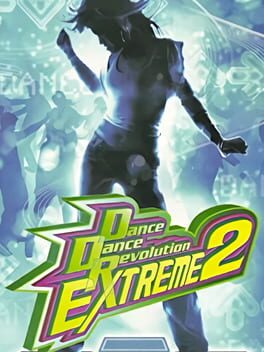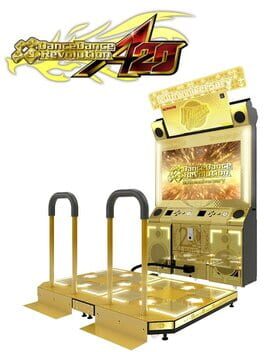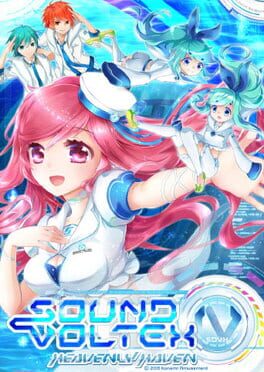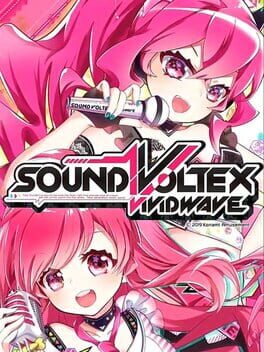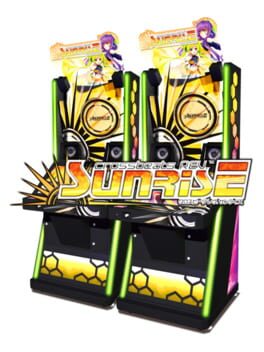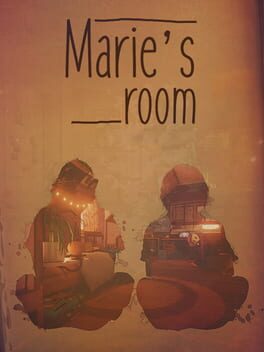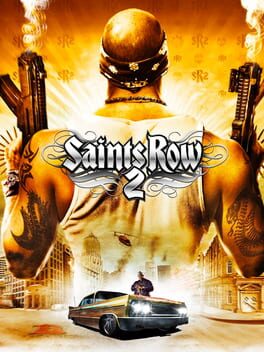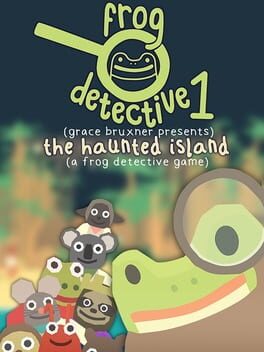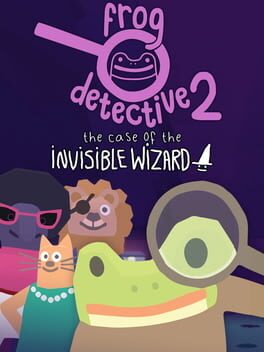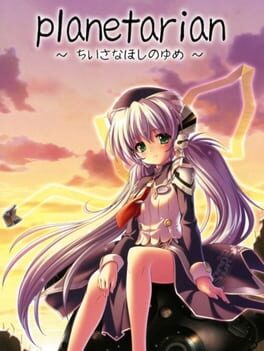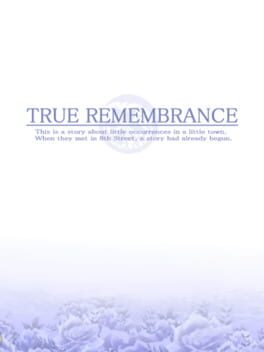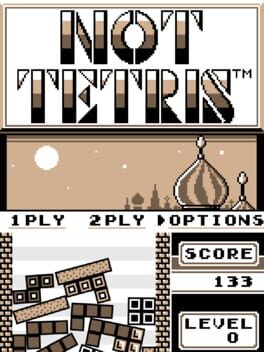tvwolfsnake
2012
The much-ballyhooed memory inventory is an interesting innovation in the adventure game genre, even if it brings in its own problems with non-obvious interactions, and I admire the story for some of the paths it goes down—particularly with regards to ethics in scientific research—even if the endings undercut that some.
(Also, the [I don't want to put a spoiler warning on this review] is kind of orientalist, despite the game going out of its way to mock orientalism. There's similar "hmm" moments with Anna's childhood. In general, the game's a mixed bag.)
There's a sort of "former condescending nerd, reformed" feeling to a lot of the puzzles, which is definitely on-theme; it's both mildly obnoxious and really engaging, presenting puzzles where the obvious adventure gamey solution fails because the way the actual system you're engaging with works is a little less simplified than it normally would be. The blueprint puzzle made me roll my eyes a little in this regard, but the lab section and the magnet-based take on a wolf, goat, and cabbage-style problem were particular highlights that made me feel more clever for solving them than most adventure game puzzles do.
It's a good, solid game, but you can see the potential for a great one in there.
(Also, the [I don't want to put a spoiler warning on this review] is kind of orientalist, despite the game going out of its way to mock orientalism. There's similar "hmm" moments with Anna's childhood. In general, the game's a mixed bag.)
There's a sort of "former condescending nerd, reformed" feeling to a lot of the puzzles, which is definitely on-theme; it's both mildly obnoxious and really engaging, presenting puzzles where the obvious adventure gamey solution fails because the way the actual system you're engaging with works is a little less simplified than it normally would be. The blueprint puzzle made me roll my eyes a little in this regard, but the lab section and the magnet-based take on a wolf, goat, and cabbage-style problem were particular highlights that made me feel more clever for solving them than most adventure game puzzles do.
It's a good, solid game, but you can see the potential for a great one in there.
Sure wish I could play this without feeling like families at my local R1 are giving me disapproving looks for the animated half-naked Rasis on the menus, and I can't turn around and be like "hey, I know, I'm not a fan either," because in some ways that'd be even weirder—
Well, now I wish I even had that problem, since the pandemic made it unsafe to go to the arcade at all.
Song navigation was better in Heavenly Haven, but whatever. It's still Sound Voltex. The songlist is great and the knob gimmick is too, especially on a well-maintained machine. The best kind of sensory overload.
Well, now I wish I even had that problem, since the pandemic made it unsafe to go to the arcade at all.
Song navigation was better in Heavenly Haven, but whatever. It's still Sound Voltex. The songlist is great and the knob gimmick is too, especially on a well-maintained machine. The best kind of sensory overload.
2018
It's well voice-acted for its budget, and there's decisions it makes that I do like. (Most notably, it's about high school memories but the "past" of the game is the same year the game came out, which neatly avoids a lot of worn out nostalgia tropes.) It feels derivative, though, and doesn't take those influences to a particularly new or different place.
The denouement didn't feel earned, and I was kind of left wondering if the developers had a story they wanted to tell, or if they just put this together because they thought people might buy it.
The denouement didn't feel earned, and I was kind of left wondering if the developers had a story they wanted to tell, or if they just put this together because they thought people might buy it.
2008
I am fully aware how ridiculous this may sound, but I am being 100% serious when I tell you that this game's cutscenes, seemingly driven mostly by "hm, what would look the coolest here?", are better—and more thoughtfully—shot and edited than most other games I've played.
"But what about [prestige game]" especially better than that.
Despite the average shot length being too short for my taste, the cutscene where the Ronin attempt to ambush Johnny Gat and the player was when I realized "oh, someone DIRECTED this." Beyond the flashier stuff like the derivative-but-still-great katana flower-cutting discretion shot, there's a real sense of rhythm to the scene and thoughtfulness to the blocking (to say nothing of the physical comedy) that persists across all the other story cutscenes, once I started paying attention.
(Of particular note is the long take late in the Brotherhood arc, which I bring up not because long takes are inherently good or something—they're frequently misused pretentiously by people who don't understand what they're for—but because it's specifically there to create a vulnerable, scrambling feeling that underlines both the larger theme of the arc of powerful people feeling powerless and lashing out in petty destructive ways, and the immediate theme of Maero Is Bigger And Stronger Than Me Oh No.)
The fact that these cutscenes come out of an era in gaming that was still pretty dominated by "just vaguely point the camera at the action" is nuts.
Oh also the rest of the game's alright. It's extremely 2008 in good and bad ways. It's better than the HD GTAs by a country mile. It's hard for me not to compare its controls negatively to its sequel, since I played it first—jumping on cars to get in them without the animation is a salve, but doesn't compare to jumping directly into the driver's seat in SRTT—but obviously the tradeoff is that Stilwater is a better sandbox than Steelport.
(p.s. the female player character is sorta-canonically trans, which is fun)
"But what about [prestige game]" especially better than that.
Despite the average shot length being too short for my taste, the cutscene where the Ronin attempt to ambush Johnny Gat and the player was when I realized "oh, someone DIRECTED this." Beyond the flashier stuff like the derivative-but-still-great katana flower-cutting discretion shot, there's a real sense of rhythm to the scene and thoughtfulness to the blocking (to say nothing of the physical comedy) that persists across all the other story cutscenes, once I started paying attention.
(Of particular note is the long take late in the Brotherhood arc, which I bring up not because long takes are inherently good or something—they're frequently misused pretentiously by people who don't understand what they're for—but because it's specifically there to create a vulnerable, scrambling feeling that underlines both the larger theme of the arc of powerful people feeling powerless and lashing out in petty destructive ways, and the immediate theme of Maero Is Bigger And Stronger Than Me Oh No.)
The fact that these cutscenes come out of an era in gaming that was still pretty dominated by "just vaguely point the camera at the action" is nuts.
Oh also the rest of the game's alright. It's extremely 2008 in good and bad ways. It's better than the HD GTAs by a country mile. It's hard for me not to compare its controls negatively to its sequel, since I played it first—jumping on cars to get in them without the animation is a salve, but doesn't compare to jumping directly into the driver's seat in SRTT—but obviously the tradeoff is that Stilwater is a better sandbox than Steelport.
(p.s. the female player character is sorta-canonically trans, which is fun)
Enh.
It's not as if the game lacks charm entirely—there's a good joke or two—but instead of feeling satisfyingly brief, like I was hoping for from the reactions of others, it's more like the first act of an adventure game, compressed, with a scene that ties up some secondary threads arbitrarily declared the ending. It's like if Secret of Monkey Island ended with Guybrush and his crew getting on the ship, but with 90% of the puzzles on Melée removed.
Trading quest puzzles tend to be a boring chore, and Frog Detective's VN-but-sluggish interaction model definitely doesn't help there, but more importantly it isn't even really a puzzle. The closest it comes is "these objects serve a similar utility," but as a telegraphed substitution ("give me something that serves the same utility!") instead of something you have to work out for yourself. It might work better for small children, but also as someone who grew up on Humongous Entertainment I expect better of children's adventure games, so I don't know.
It's not as if the game lacks charm entirely—there's a good joke or two—but instead of feeling satisfyingly brief, like I was hoping for from the reactions of others, it's more like the first act of an adventure game, compressed, with a scene that ties up some secondary threads arbitrarily declared the ending. It's like if Secret of Monkey Island ended with Guybrush and his crew getting on the ship, but with 90% of the puzzles on Melée removed.
Trading quest puzzles tend to be a boring chore, and Frog Detective's VN-but-sluggish interaction model definitely doesn't help there, but more importantly it isn't even really a puzzle. The closest it comes is "these objects serve a similar utility," but as a telegraphed substitution ("give me something that serves the same utility!") instead of something you have to work out for yourself. It might work better for small children, but also as someone who grew up on Humongous Entertainment I expect better of children's adventure games, so I don't know.
It's better than the first game in some respects (the spooky forest atmosphere is lovely, for one thing) but unfortunately the same trading quest puzzle returns, and this time has a hidden object fetch quest choke point that makes it more obvious how aggressively linear it is. It's not that linearity is a bad thing, but the first game gave you access to the magnet before you'd talked to anyone, and instead the pies here are a fetch quest where your reward is the start of the set of trades.
More than anything I think the game coasts on charm, and I just don't find it that charming. Maybe I just don't have the stomach for twee, or maybe it's that the game just feels a bit too Tender Frog House to me. It's not the creators' fault how people respond, but I'm still allowed to be vaguely frustrated with the ~everything should be "wholesome"~ discourse that this series is probably used as a prop in. Does color my view a bit.
More than anything I think the game coasts on charm, and I just don't find it that charming. Maybe I just don't have the stomach for twee, or maybe it's that the game just feels a bit too Tender Frog House to me. It's not the creators' fault how people respond, but I'm still allowed to be vaguely frustrated with the ~everything should be "wholesome"~ discourse that this series is probably used as a prop in. Does color my view a bit.
This review contains spoilers
It's not as if this story doesn't have some big false notes in it—the one that most stuck out was that the Junker lacked some sort of impetus to change his mind and come back to the planetarium, instead just showing up again—and probably anyone could see Yumemi's final lines coming from a mile away.
But I'm a huge sucker for plots about clinging to hope in spite of everything, and learning to hope in spite of everything, and I'm an even bigger sucker for the dramatic irony of a twist of the knife you know is coming. Especially one already imbued with meaning.
One of the better ways to make yourself cry for two hours.
But I'm a huge sucker for plots about clinging to hope in spite of everything, and learning to hope in spite of everything, and I'm an even bigger sucker for the dramatic irony of a twist of the knife you know is coming. Especially one already imbued with meaning.
One of the better ways to make yourself cry for two hours.
2007
The core game is just fundamentally not a good design. High-level play is impressive but in spite of that. A shocking take, I know, coming from an arcade rhythm gamer.
The other modes are fine clones but there are better clones of more specific games.
I respect the charting community and the breadth of music is great. It's a worthwhile example of the power of collectives of hobbyists. I just...enh.
(also the group of osu fans that think everything's "from osu" are annoying but that's not in any way the game's fault)
The other modes are fine clones but there are better clones of more specific games.
I respect the charting community and the breadth of music is great. It's a worthwhile example of the power of collectives of hobbyists. I just...enh.
(also the group of osu fans that think everything's "from osu" are annoying but that's not in any way the game's fault)
2006
This review contains spoilers
What do you do with a work like this? I found it genuinely boring for hours, with little emotional highlights here and there—I'm a huge mark for any character trapped in a pattern of self-denial, so La's perspective in particular hit me like a truck—that couldn't save the overwhelming just-okayness of it all.
And then the twist comes, and I feel like that tricked me into thinking the VN's way better than it is.
But at least the twist is better than I thought it was. My first impression was that it was a cheat, abandoning everything we knew about the characters—and it's not NOT a cheat, since multiple chapters of the game are from La's perspective and she conveniently leaves details out—but mostly the revelations recontextualize, rather than alter, the characters and their relationships. There's still a continuity between who they are and who it turns out they were.
(And hey, it's a story about memory erasure, I can forgive a slightly cheap twist about memory erasure.)
Interesting choice to lead La's backstory with Blackiris' half-joking worry that Analye is a pedophile, because it really colors how the Omega storyline ends up coming across. Stating the subtext out loud, but it works somehow.
And then the twist comes, and I feel like that tricked me into thinking the VN's way better than it is.
But at least the twist is better than I thought it was. My first impression was that it was a cheat, abandoning everything we knew about the characters—and it's not NOT a cheat, since multiple chapters of the game are from La's perspective and she conveniently leaves details out—but mostly the revelations recontextualize, rather than alter, the characters and their relationships. There's still a continuity between who they are and who it turns out they were.
(And hey, it's a story about memory erasure, I can forgive a slightly cheap twist about memory erasure.)
Interesting choice to lead La's backstory with Blackiris' half-joking worry that Analye is a pedophile, because it really colors how the Omega storyline ends up coming across. Stating the subtext out loud, but it works somehow.
2011
